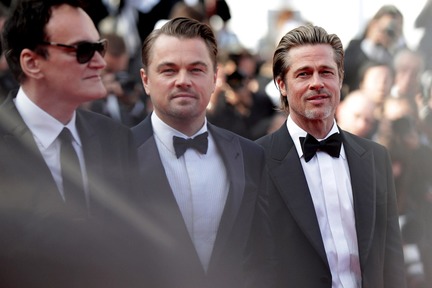On sincerity and Tarantino - J. Hoberman in NYRB:
"Hollywood’s changing mores, though, surely were on Tarantino’s mind. Once Upon a Time is the first movie he has made since the disgrace of his longtime patron, Harvey Weinstein. Was Tarantino chastened by Weinstein’s fall or simply resentful at the loss of a major sponsor? Once Upon a Time repeatedly points out that Cliff has avoided punishment for a crime against a woman more egregious than any of the charges laid against Weinstein: he has killed his wife. So what are we to make of the fact that Cliff is also the movie’s most likable character?
The women in Once Upon a Time, in fact, are notably depersonalized, undeveloped in Tate’s case and, with Manson’s harem, merely menacing. Tarantino evidently had no interest in representing the maenads as victims of the patriarchy, whereas previous films of his, notably Jackie Brown and Kill Bill, have featured strong female leads. Certainly, these young women are no one’s idea of feminist heroines; perhaps they deserve their abject state. With its contrasting focus on Manson as a crafty misogynist who uses public mortification and gaslighting to manipulate his female followers, Charlie Says is far more relevant to Trump’s America: the cult leader as a demagogue writ small.
If Manson gets short shrift from Tarantino, it may be because movies are an inherently authoritarian medium and there is room for only one autocrat in Once Upon a Time. More than any other working director, Tarantino understands the dark desires for domination and vengeance that movies can enable… because they are his. More self-aware than Spielberg and less cynical than Hitchcock, Tarantino is absolutely sincere in his grateful, reverent attachment to Hollywood and his obsession with the movies of his adolescence. And in successfully implicating the audience and satisfying its bloodlust at the conclusion of Once Upon a Time, he pulls off an impressively Hitchcockian switcheroo."
Read the article here.
Sincere nostalgia, why not. A nostalgia for an innocence that never existed is perfectly understandable as well, especially if you evoke your six-year-old self. But the price we pay for feigned innocence is high: the distribution of stupidity.
